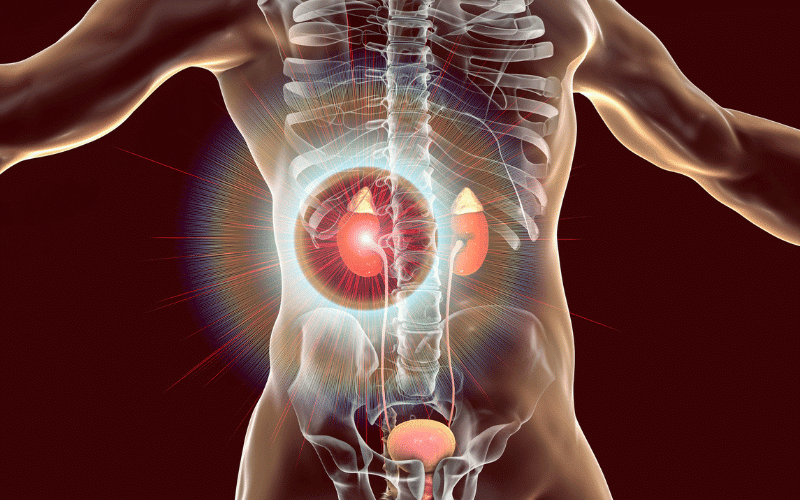Problem 5: Polycystic Kidney Disease (PKD)

Polycystic Kidney Disease is a genetic disorder characterized by the growth of numerous fluid-filled cysts within the kidneys. These cysts can lead to an enlargement of the kidneys and impair their function over time. PKD is the fourth leading cause of kidney failure in the United States.
There are two primary forms of PKD: autosomal dominant PKD (ADPKD) and autosomal recessive PKD (ARPKD). ADPKD is the most common form and typically presents in adulthood, while ARPKD is less common and usually becomes apparent during childhood.
Symptoms of PKD may include:
• Pain in the back or side
• Headaches
• High blood pressure
• Blood in the urine
• Kidney stones
• Urinary tract infections
There is currently no cure for PKD, so treatment primarily focuses on managing symptoms and preventing complications. This may involve medications to control blood pressure, pain relief medication, antibiotics for infections, and lifestyle modifications such as a healthy diet and regular exercise. In advanced cases of PKD, dialysis or a kidney transplant may be necessary. (5)